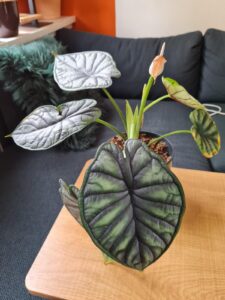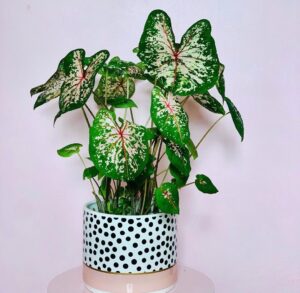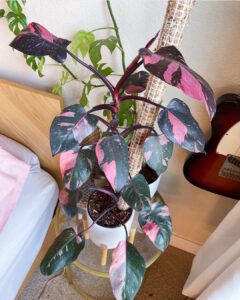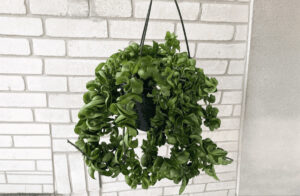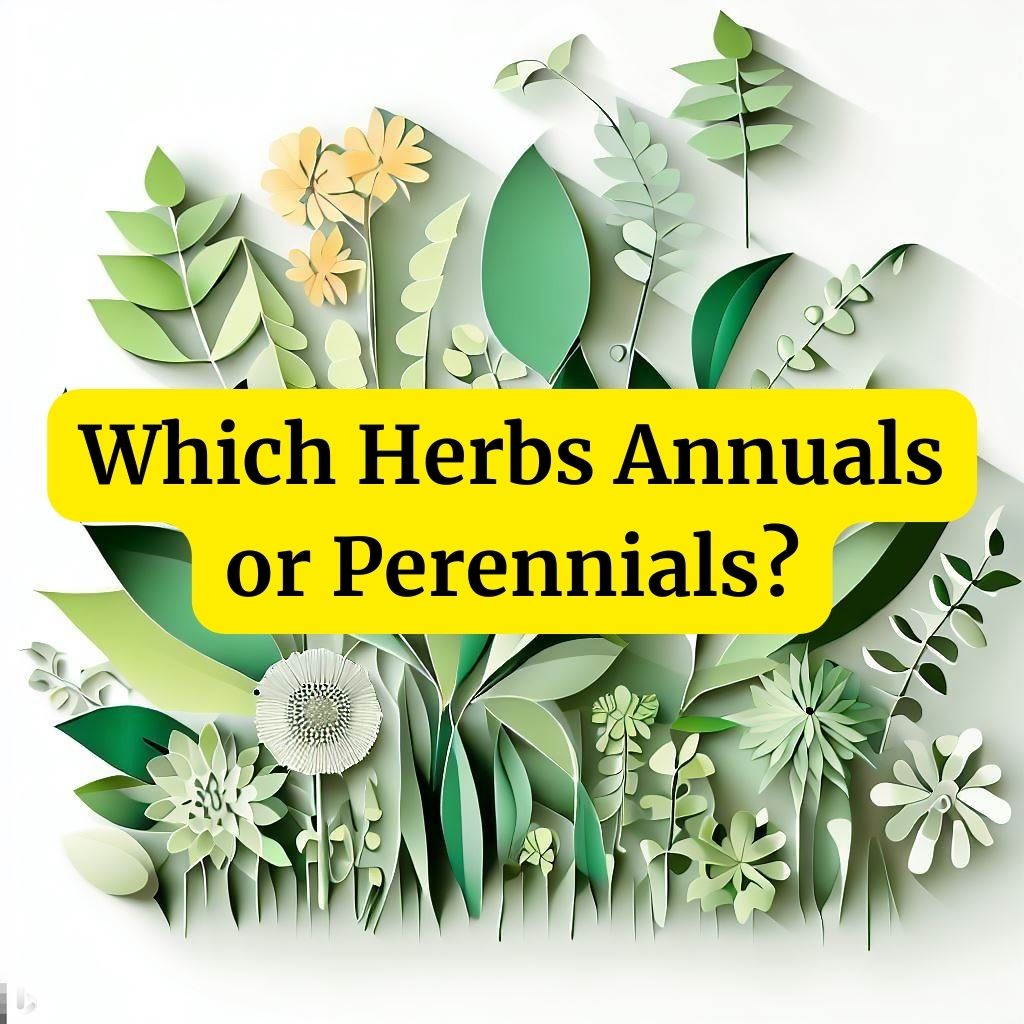
When planning an herb garden, it’s important to understand the difference between annual and perennial herbs. Annual herbs complete their life cycle in one year, while perennial herbs can live for more than two years, often returning from their roots in the spring. Some popular perennial herbs include rosemary, sage, thyme, mint, chives, and marjoram.
In this article
What are Annual Herbs?
Annual herbs are herbs that complete their life cycle in one growing season. They grow from seed, produce leaves, flowers, and seeds, and then die. Examples of annual herbs include basil, cilantro, dill, and parsley. Annual herbs are easy to grow and are perfect for beginners.
What are Perennial Herbs?
Perennial herbs are herbs that live for more than two years. They grow back year after year and can survive winter. Examples of perennial herbs include rosemary, thyme, sage, and oregano. Perennial herbs require less maintenance than annual herbs and are perfect for gardeners who want to grow herbs year-round.
What Herbs Live Year-Round?
If you want to have fresh herbs all year round, you should consider planting perennial herbs. These perennial herbs thrive year-round: thyme, rosemary, sage, oregano, mint, chives and lavender.
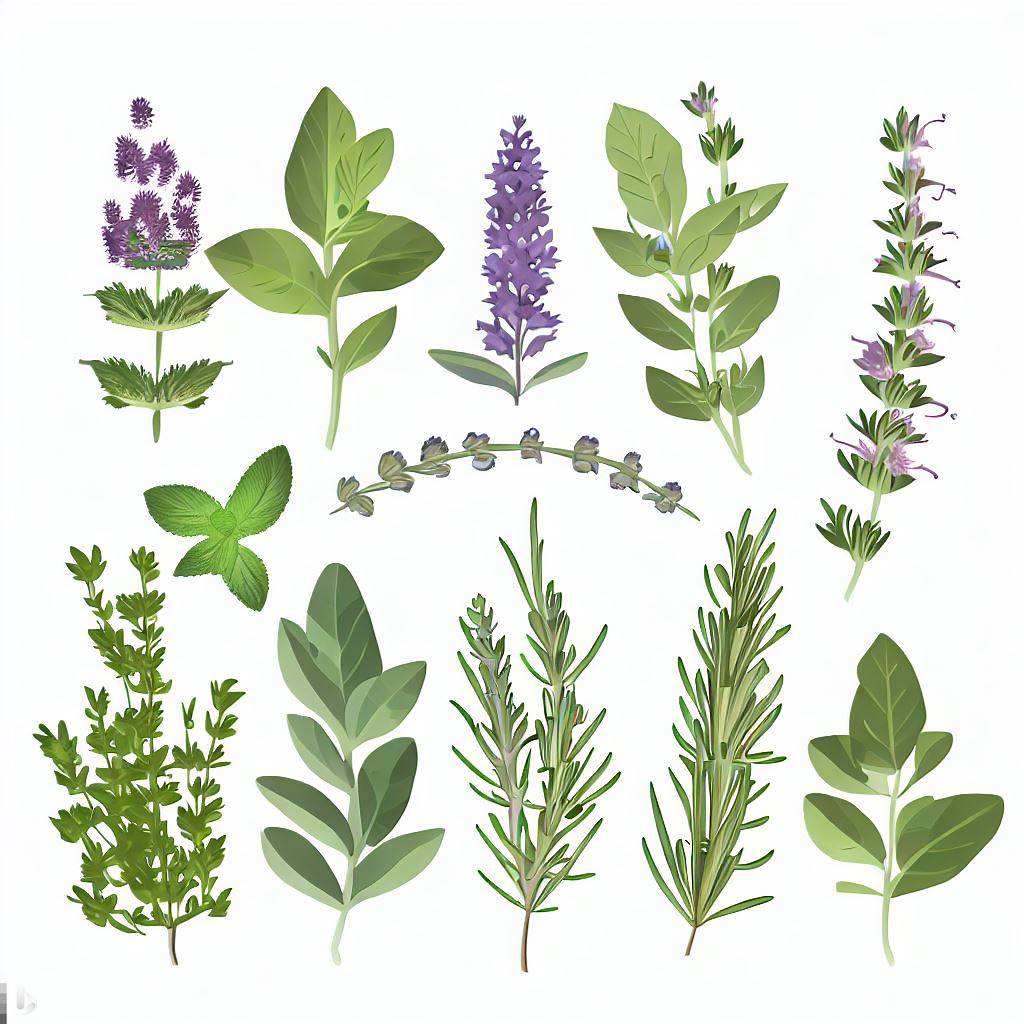
To ensure the longevity of your perennial herbs, follow these care tips:
- Adequate sunlight and well-draining soil are essential.
- Prune and harvest regularly to encourage growth.
- Protect them from harsh weather conditions.
Which Herbs Are Biennial?
Biennial herbs have a two-year life cycle. They typically grow leaves in their first year and produce flowers and seeds in the second year before completing their life cycle. Some examples of biennial herbs include:
- Parsley: This popular garnish herb follows a biennial pattern.
- Carrots: While not a herb, carrots are a well-known biennial root vegetable.
Do you know your parsley from your cilantro?
Take these 6 easy questions and test your herb knowledge.
Have fun!
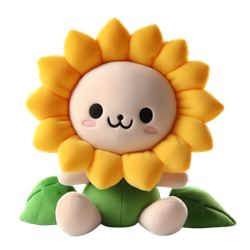
Question
Your answer:
Correct answer:
Your Answers
Will Herbs Survive Winter?
Winter can be harsh on your herb garden, especially if you have perennial herbs. Here’s how you can ensure your herbs survive the cold months:
- Preparing your garden for winter: Clean up your garden, remove dead foliage, and mulch around your perennial herbs to insulate them.
- Protecting herbs from cold temperatures: Cover sensitive herbs with frost cloths or move potted herbs indoors to a sunny spot.
- Overwintering strategies for perennial herbs: Some perennial herbs can be overwintered indoors.
How Long Will Potted Herbs Last?
Potted herbs are a fantastic addition to your indoor garden, but their lifespan can vary. Several factors affect how long they thrive:
- Container size: Choose pots with ample space for root growth.
- Soil quality: Use well-draining, nutrient-rich soil.
- Watering: Avoid overwatering or letting the soil dry out completely.
To extend the life of your potted herbs, follow these tips and consider replanting when necessary.
Do Herbs Need to Be Replanted Every Year?
Annual herbs have a shorter lifespan and require replanting each year. However, there are alternatives to this yearly cycle:
- Perennial herbs: As mentioned earlier, these herbs come back year after year.
- Indoor herb gardens: Growing herbs indoors can provide a year-round supply of fresh flavors.
In conclusion, understanding whether your herbs are annual or perennial is crucial for successful herb gardening. Armed with this knowledge, you can create a garden that thrives, providing fresh herbs for your culinary adventures year after year.
Do you REALLY know your gardening?
Take this quiz to see if you are a gardening expert.
These 6 questions are really tough!! Good luck!

Question
Your answer:
Correct answer:
Your Answers
Frequently Asked Questions
Can I grow annual herbs alongside perennial herbs in my garden?
es, you can grow annual herbs alongside perennial herbs in your garden. Annual herbs complete their life cycle in one growing season, while perennial herbs live for more than two years and grow back year after year. Planting both types of herbs in your garden can provide you with fresh herbs all year round
What is the best time to prepare my herb garden for winter?
The best time to prepare your herb garden for winter is in the fall. Before the first frost, you should prune your herbs, remove any dead leaves or stems, and mulch around the base of your plants to protect their roots from freezing. You should also cover your herbs with a frost cloth or blanket to protect them from frost.
How often should I water potted herbs?
The frequency of watering potted herbs depends on several factors, including the type of herb, the size of the pot, and the growing conditions. In general, you should water your potted herbs when the top inch of soil feels dry to the touch. Overwatering can lead to root rot, so it’s essential to let the soil dry out between waterings.
Are there any perennial herbs that are not suitable for indoor herb gardens?
Some perennial herbs are not suitable for indoor herb gardens because they require full sun and well-drained soil. Examples of perennial herbs that are not suitable for indoor herb gardens include rosemary, thyme, and lavender. However, you can still grow these herbs indoors if you provide them with enough sunlight and the right growing conditions.
Can I grow biennial herbs as annuals?
Yes, you can grow biennial herbs as annuals. Biennial herbs complete their life cycle in two years, but you can harvest them in the first year before they produce flowers and seeds. Examples of biennial herbs that you can grow as annuals include parsley, caraway, and angelica.


